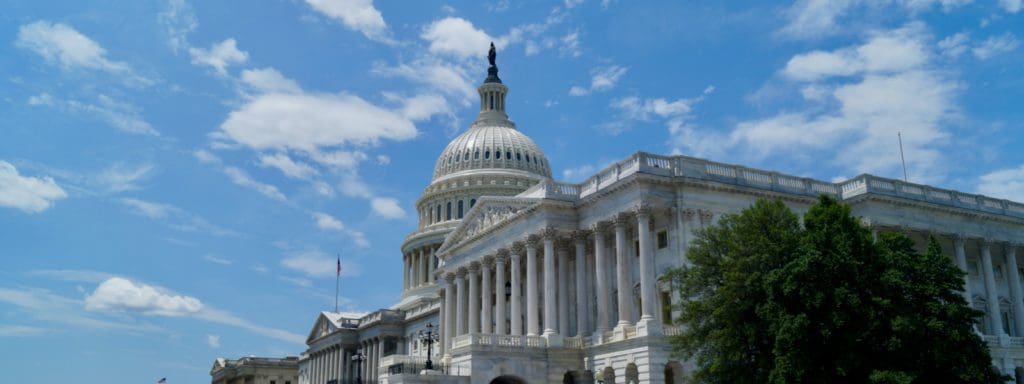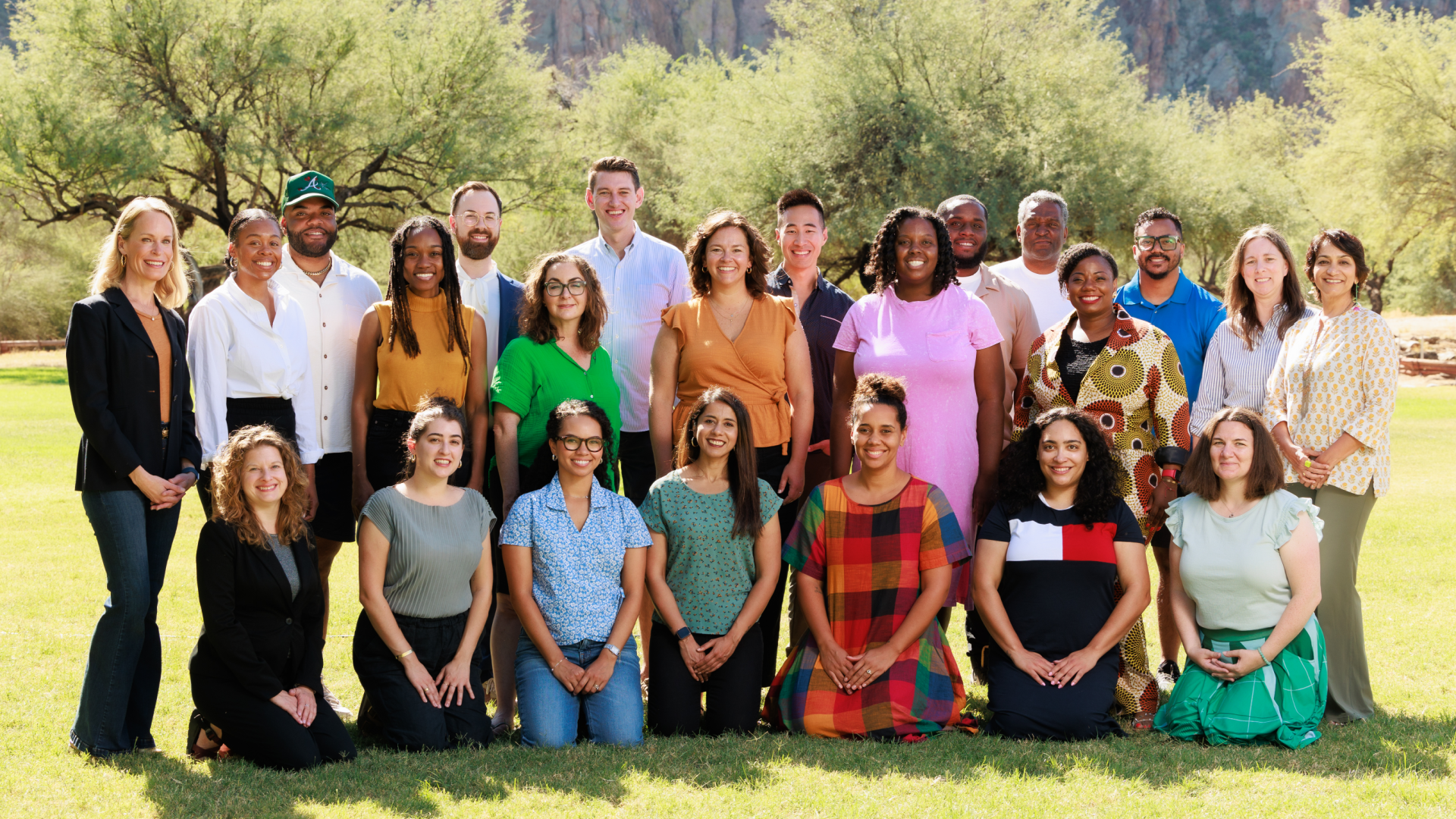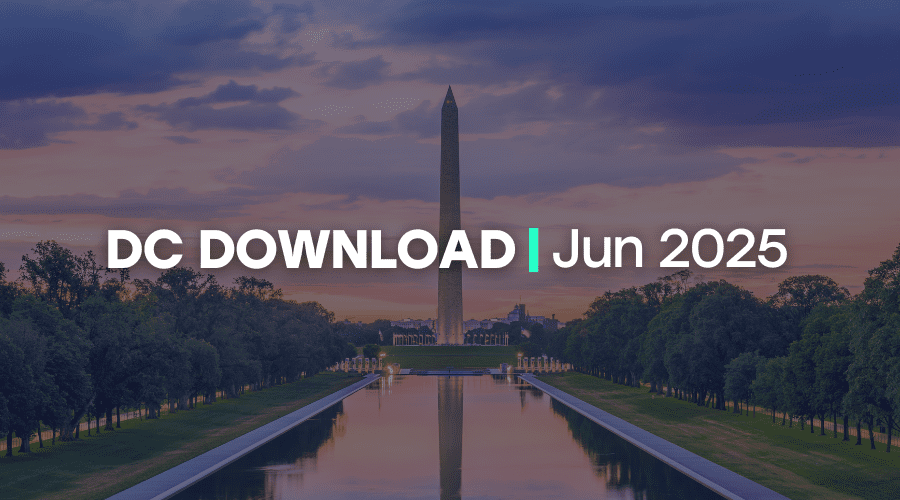Long time no see! I hope you missed your monthly DC Download. Summer is over, and we are getting into the fall season. Besides everything pumpkin spice, Congress is trying to wrap up some essential business – like funding the government – before they go back to their districts for the final stretch of campaign season ahead of the midterm elections. If you unplugged during summer and are still enjoying the last glimpse of it, fear not. Here is a download of issues in Washington, D.C. affecting nonprofits:
Legislative Update
The Fiscal Year 2022 budget reconciliation process is over. On August 16, President Biden signed into law the Inflation Reduction Act (IRA) (H.R. 5376), a bill that finances climate and energy provisions, and an extension of enhanced aspects of the Affordable Care Act (ACA). It also included funding for Internal Revenue Service (IRS) enforcement, and Medicare’s new ability to negotiate prescription drug prices. The reconciliation bill passed the Senate on August 7, after all 50 Senate Democrats voted in favor and Vice President Harris broke the tie for the bill that was discussed by Democrats in Congress for over a year. While it contained some small but significant victories for the agenda of the Nonprofit Infrastructure Investment Advocacy Group (NIIAG), which Independent Sector and KABOOM! co-founded, it excluded many key investments in civic infrastructure that had passed the House of Representatives last year.
The only must-pass item for Congress before they leave for the district work period, ahead of the November midterm election, is the continuing resolution (CR) to fund the government. Government funding expires September 30. Congress has less than a week to pass the stopgap funding measure or risk its first shutdown in years, and lawmakers still have several hurdles to cross before they can clear the finish line.
Most expect that Congress will find a way to pass a short-term measure that will fund the government through December 16 before midnight Friday. Among the items in the continuing resolution is Ukraine aid and a five-year reauthorization of the Food and Drug Administration (FDA) user fee program.
Funding the government through December 16, would create the need for another government funding bill to be sent to President by mid-December, creating a vehicle to potentially carry year-end tax and retirement legislation, depending on the results from the midterm elections.
Voters Support Reinstating the Temporary Charitable Deduction
On September 20, Independent Sector released public polling results reflecting the views of registered voters on a wide range of topics related to nonprofits and public policy. According to the results, 85% of voters support permanently restoring the expired $300 charitable deduction. Additionally, over three quarters of voters (77%) support expanding the universal charitable deduction to up to $4,000 for all Americans. This data comes at a crucial time for nonprofit advocates who are trying to reinstate and expand the deduction, while there is bipartisan and bicameral support in Congress for the Universal Giving Pandemic Response and Recovery Act (S. 618/H.R. 1704). The legislation would raise the $300/$600 cap to roughly $4,000 for individuals/$8,000 for couples and extend the deduction through 2022.
Language in Support of Nonprofit Data Included in Appropriations Report
Language included in the Fiscal Year 2023 Appropriations Committee report for the Departments of Labor, Health and Human Services, and Education, and Related Agencies in the House (page 34) and Senate (page 43) showcases support for quarterly Bureau of Labor Statistic (BLS) data for nonprofits. This language is included in the Nonprofit Sector Strength and Partnership Act (H.R. 7587), introduced by Reps. Betty McCollum (D-MN) and Fred Upton (R-MI), which would ensure that the nonprofit sector receives the same quarterly wage and jobs data that businesses already get for free.
The Legacy IRA Act Passes Senate Finance Committee
On June 22, The Senate Finance Committee approved the Enhancing American Retirement Now (EARN) Act – retirement legislation that includes the modified Legacy IRA Act provision, which would encourage charitable giving by enabling seniors to make tax-free contributions from individual retirement accounts (IRAs) to charities through life-income plans. The modified Legacy IRA Act provision is also included in the House-passed Securing a Strong Retirement Act.
Public Service Loan Forgiveness Waiver Expiring Soon
The limited Public Service Loan Forgiveness (PSLF) waiver that allows all payments by student borrowers to count toward PSLF, regardless of loan program or payment plan is set to expire on October 31, 2022. Thousands of nonprofit employees can receive credits for past periods of repayment that would otherwise not qualify. Independent Sector encourages nonprofit employees to confirm their eligibility using the Public Service Loan Forgiveness Tools & Resources developed in partnership with the National Council of Nonprofits and the PSLF Help Tool.
The White House launched a series of PSLF Days of Action dedicated to borrowers in specific sectors, to ensure they are aware of the temporary changes. The PSLF Day of Action for nonprofit organizations was on September 14. Throughout the day, nonprofit stakeholders engaged in digital outreach to raise awareness of the temporary PSLF waiver deadline and provided educational tools and resources to support nonprofit employers’ efforts to disseminate guidance on the limited waiver application and certification requirements. On September 23, the PSLF coalition sent a letter to President Biden advocating for the extension of the temporary waiver until July 2023. Independent Sector endorsed the letter.
On August 24, President Biden announced a plan that would bring student loan relief for borrowers. Under the plan, the Department of Education will provide up to $20,000 in debt cancellation to Pell Grant recipients with loans held by the Department of Education, and up to $10,000 in debt cancellation to non-Pell Grant recipients. Borrowers are eligible for this relief if their individual income is less than $125,000 ($250,000 for married couples). Additionally, the pause on federal student loan repayment has been extended one final time through December 31, 2022. Borrowers should expect to resume payment in January 2023.
Data Privacy Bill Passes Committee with Bipartisan Support
On July 20, the House Committee on Energy and Commerce voted to pass the American Data Privacy and Protection Act (H.R. 8152), a bipartisan, bicameral national comprehensive data privacy and security proposal, by a vote of 53-2. The Act establishes a national standard to protect consumer data privacy, imposes obligations on covered entities, and allows for federal, state, and individual enforcement. The FTC is designated as the regulator to enforce the bill at the federal level. The bill was introduced by Reps. Pallone (D-NJ), Rodgers (R-WA), Schakowsky (D-IL), and Bilirakis (R-FL) on June 21, 2022. The bill could have significant impacts on nonprofits. See Independent Sector’s summary of the legislation.
Ana Montañez is manager of government relations at Independent Sector.



